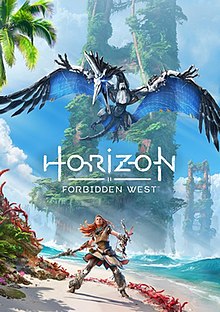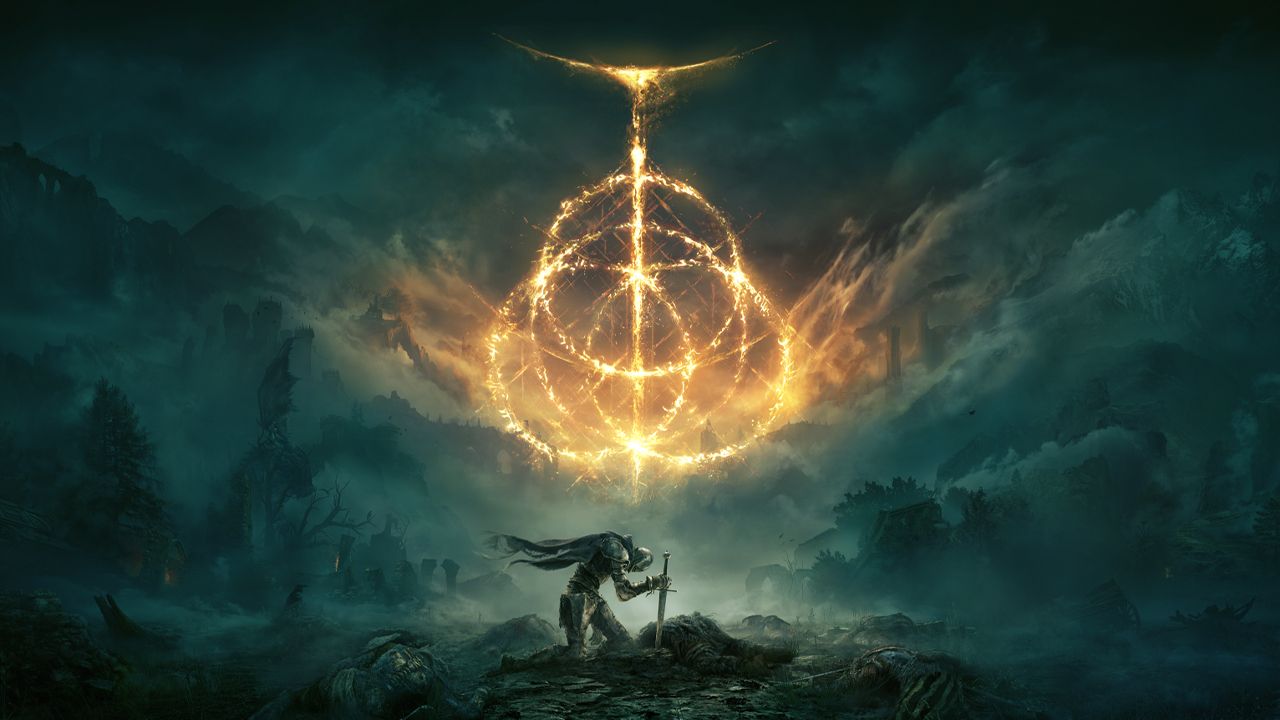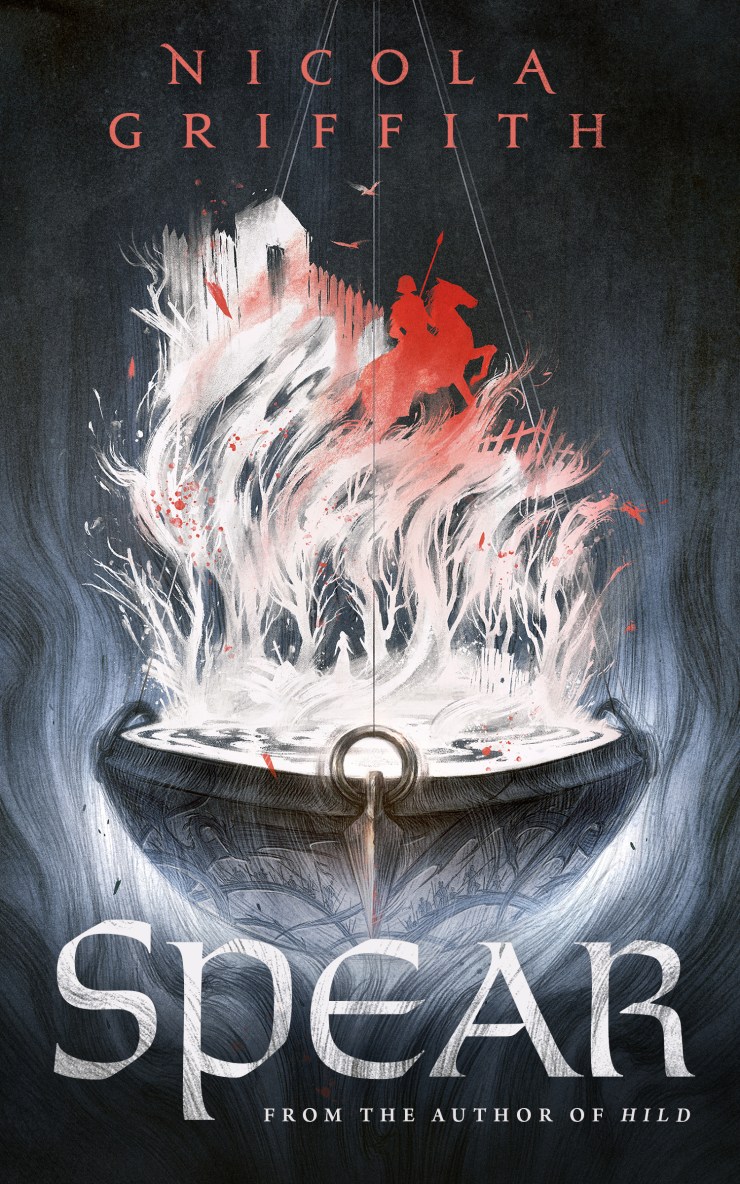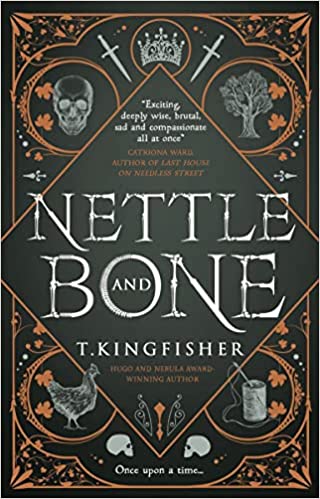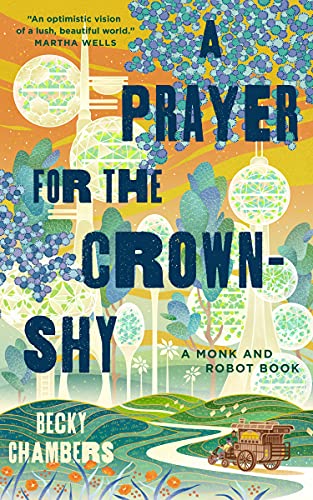Joe: You know, there’s a kind of benefit to not being quite as plugged in as I’ve been in past years. It was a fun surprise when the finalists for the Nebula Awards were announced. I hadn’t been paying attention and just stumbled across the announcement mid stream and was delighted to see the recognition unfold.
Adri: With the Hugo schedule so out of whack this year, it also feels like the announcement came super early, even though it’s the same time every year. As a non-Nebula voter, normally the shortlist comes in time to inform a few last minute reading decisions before Hugo nominations close, but this year there’s been almost no overlap at all. It’s weird, but I’m not complaining.
And what an interesting ballot the Nebulas are! I want to buck tradition and talk about the game writing category first, because I think this is pretty close to what we’d have seen in a Hugo game ballot if we had one (next year, I hope!) Pentiment and Horizon: Forbidden West were two of my favourite games of last year and I’m absolutely delighted to see them both recognised.
Joe: It is a super cool Game Writing category - a couple of absolute monster AAA multiplatform video game titles, some smaller but cool games (Stray is on my radar, Pentiment is not, but only because I don’t have an Xbox), a computer game, and an actual Dungeons and Dragons tabletop game. Not bad!
I’ve only played Horizon Forbidden West, which I absolutely loved. Fantastic storytelling, which is the point of the category, but the gameplay was also top notch.
Actually - that’s an interesting difference between the once and future Best Game or Interactive Work category and the Nebula Award. The Nebula is specific to Best Game Writing, which makes sense from an SFWA perspective. They’re recognizing writers. The Hugo, however, doesn’t need to go to a narrative based game. A new Mario game (and please, give me a new Mario game this year) could just as easily be recognized with a Hugo Award as the Elden Ring / Horizon Forbidden West / God of War Ragnarok triple threat that was AAA gaming in 2022.
Not that it matters for much, but the odds of my playing Elden Ring are exceedingly low. I don’t do grueling difficulty anymore, no matter how good the storytelling lore happens to be.
Adri: Same. I wish
I could justify playing Elden Ring but I know it will just make me frustrated and unhappy and that’s not what my leisure time is for. I quite often have a long learning curve with games: I’ll start them on an easier difficulty or using accessibility options (like Hades’ God Mode) and work my way up to a pretty high skill level (like getting the Hades 32 heat statue). FromSoftware doesn’t want people playing their games like that, and that’s their call, so I won’t play their game.Stray, on the other hand, really ought to be up my alley but I keep forgetting it exists, which is kind of absurd. Blame my Pokemon era for pulling me away from any game that doesn’t involve collectible-driven blood sports, I guess.
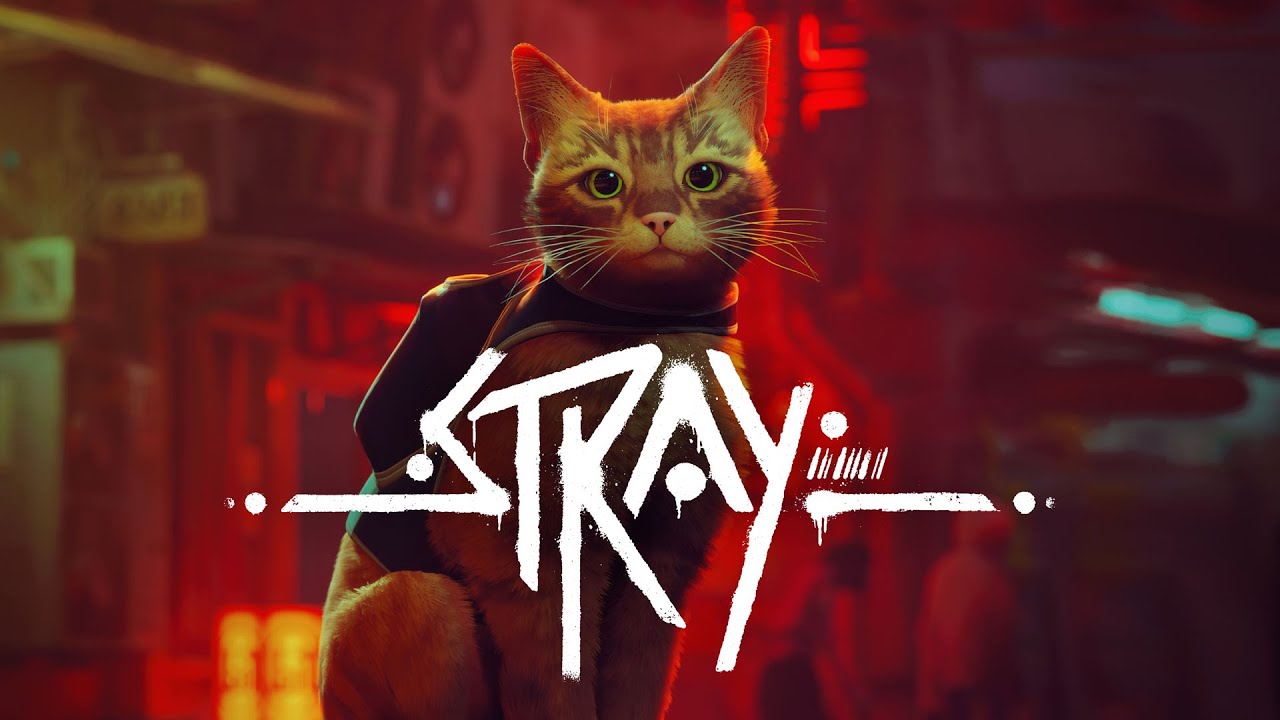
There were two real surprises in the category. The first is Nettle and Bone, which is a surprise only in the sense that Ursula Vernon / T. Kingfisher is very popular and her work is loved, but it hasn’t broken through in Best Novel categories (outside of the British Fantasy Awards). It’s tough to predict a breakthrough.
The other is Legends and Lattes, which is a novel I just don’t know what to do with in terms of predictions. I still haven’t read it yet, but as we discussed briefly in our Locus chat, it has had the sort of buzz that might push it through. I believe you’ve read it, though. What do you think?
Adri: In the time between our last conversation and the announcement, I’ve managed to read two of the three best novel finalists that I hadn’t read yet - leaving just The Mountain in the Sea (and I have that out from the library!). So yeah, I’ve read Legends and Lattes and yeah, I have thoughts.
Surface level, those thoughts are “aww, that was nice”. Legends and Lattes has surged to popularity on the strength of basically being the most low-stakes-in-a-boilerplate-world fantasy you can imagine: a half orc adventurer hanging up her sword and starting a coffee shop in a random town in a thinly disguised Dungeons and Dragons setting. Along the way she gathers a group of fellow customers, contractors and employees who become her found family, reinvents a bunch of recognisable coffee shop staples with no supply chain or marketing issues, and overcomes the schemes of a local gangster (who turns out to be a pushover) and a jealous former fellow adventurer. It’s fun! And cosy! And it only takes a couple of hours to breeze through!

Joe: I’ve read half of the Nebula finalists for Novel and my experience with Legends and Lattes has been solely from the outside looking in, though I do plan to read it this year and have it on request from the library. It does sound to be the exact sort of thing I am looking for, especially in a full on season where I’m struggling with reading motivation. Settling into that cozy world may be just what I need.
So - granting exactly what you said, I do think that what you’re saying about popcorn and comfort compared to excellence makes a lot of sense, but maybe misses a bit about the book hitting at just the right moment.
I have seen some other commentary more or less echoing your overall opinion, but also being far more enthusiastic about the novel than you are. Legends and Lattes is landing at just the right moment with just the right readers and they are swept away with love and adoration for the book.
That’s probably not enough for an awards nomination, but I understand. The Nebula nomination also strengthens my opinion that Legends and Lattes is a very solid prediction for a Hugo nomination because it is NOT a novel I’d consider a “Nebula Novel” but here we are.
At its core, Spear is a telling of Perceval and the Grail, but as with all Arthurian tales it is flipped and told from unfamiliar directions. Griffith’s version is Arthurian, but it is all her own. It feels both distinct and familiar, part of a tradition but deeply its own story. Spear also seems like the novel that Nicola Griffith could only have written after first writing Hild. It is steeped into the historical details of the time, where the mud seeps into your bones while reading but isn’t constrained by the need to ground the story in as much historical accuracy as possible.
Adri: Spear didn’t grab me by the throat in the same way as it has many of my friends - you included - but I agree that it’s a fantastic piece of Arthuriana, and Nicola Griffith can do no wrong as far as I’m concerned. I’m not particularly strong on my grail mythos so the retelling sort of passed me by right up until it was hitting me in the face, but that made it all the more enjoyable.
I’m also really glad that this has hit the novel ballot with plenty of time for Hugo voters to also realise it’s a novel - I’m not sure it will be on my personal ballot, but I’d hate for it to miss out because of length assumptions. To be honest, I’m not sure capping Best Novella at 40,000 words rather than 50,000 makes sense in today’s markets, but that’s a whole other rabbit hole (and I’m not sure if Spear is under 50,000 words, to be fair).
Joe: That’s my biggest concern with Spear and the Hugo Awards - I suspect a lot of readers think that it is a novella. It feels like a novella, since “short novel” really isn’t a thing.
I loved Nettle and Bone as a classic but subversive take on the fairy tale subgenre, pulling the rug from my expectations around the three sisters early on and getting more interesting from there. It centres around the autistic-coded 30-year old Princess Marra, who despite being a grown adult with a clear sense of herself still gets to go on a journey of discovery and find out what she wants to do with her life aside from “be the second spare”. The supporting cast is fantastic, featuring two older women with rather different personalities and magical talents, and a disgraced former soldier, and there are of course some wonderful animal companions as well. I could spend all day with T. Kingfisher’s fictional dogs, although my real one (who is also a bone dog of sorts) would have things to say about that.
At the same time, I find T. Kingfisher’s work doesn’t give me what I’m looking for in terms of that extra “something” for awards reading. I'm much less baffled by this nomination than I am Legends and Lattes, but this one isn’t going to be troubling my Hugo ballot despite my appreciation for it.
Joe: I’m curious how much overlap the Nebula ballot will have with the Hugo, but I wonder that every year and I’m not sure this changes much about our initial predictions beyond what I had mentioned in our Locus conversation and taking into account the rising star of Legends and Lattes.
Except for one, I haven’t read any of the shorter fiction so I’ll let you monologue if you’d like after I say just how much I loved A Prayer for the Crown-Shy. I *liked* Chambers’ first Monk and Robot novella but wasn’t in full love with it. After just a couple of pages of A Prayer for the Crown-Shy I was hooked, enraptured, and read the whole thing in one go. It’s all heart and peaceful and considerate and it’s going to do well this year.
Adri: I had a different experience with A Prayer for the Crown-Shy, because I enjoyed the vibes but felt it didn’t deliver at all in terms of being a self-contained novella, because nothing happens. I’m totally on board with serialised stories but this specific volume doesn’t stand alone in even the thinnest sense of the word, and it’s not high on my novella list for that reason.
Joe: I’m not sure it fully depends on A Psalm for the Wild-Built either, though. We miss some context of the monk and the robot if we don’t read the first book, but I think it delivers on the emotional beats just fine without that context. But I do agree that A Prayer for the Crown-Shy is all emotional beats. It’s just that the emotional story worked for me.
Adri: Apart from that, the short story categories are an interesting and diverse bunch. While no category has the “Tor dot com sweep” that we’ve seen in the Hugo novellas, 12 out of 17 works are from three venues/publishers, Tor dot com (5), Uncanny Magazine (4) and Clarkesworld (3), with one story each from 5 other publishers. Asimov’s has its first story on the list since 2015, and F&SF is represented for the first time since 2019. Nebula historians can, I’m sure, advise on whether Jordan Kurella’s I Never Liked You Anyway is the first example of a book going out of print between its publication and Nebula nomination, since Vernacular Press closed in December 2022. But it’s been picked up again by Lethe Press, so all is well.
Anyway. I loved every story that I’ve read on here, which is actually embarrassingly few of them (have I really missed that many issues of Uncanny Magazine?) "Rabbit Test" by Samantha Mills is a story about abortion access that I wish wasn’t essential to the world we live in, but it really, really is. "Give Me English" by Ai Jiang is an amazing story about multilingualism and surviving as a migrant and the elitism of assimilation, and it’s the kind of story that’s bound to hit hard if you’re a reader or writer, regardless of your own language experience. In the novellas, Even Though I Knew The End by C.L. Polk kind of blew me away, and while I’m only partway through High Times in the Low Parliament, it’s also shaping up to be a delight. I have my usual gripes about “why no stories by FIYAH and my ten other favourite publications” but on the whole I think the Nebula nominators did good here and I’m looking forward to catching up on other stories here. Which is validation they, as professional writers, sure don’t need from me, but I’ll still give it to them.
Joe: I also don’t have much to add for the Ray Bradbury Award for the Dramatic Presentation beyond Nope and Everything Everywhere All at Once were both great and I’m very happy to see Nope recognized here because even though the Nebulas are not a major industry award for film, it was a fantastic movie and could use more recognition since it was left out of the conversation for most major movie awards.
Those were the only two in the category that I’ve seen because I’m somehow behind on my Andor and I honestly wasn’t that into the 3-4 episodes of Our Flag Means Death that I’ve watched (which I suppose means that I should count that show as something I’ve seen, sort of like an unfinished book still counts in my brain). I do plan to go back for Andor, but some of the reading funk I’ve been in has carried over to keeping up with TV (though I’m thoroughly enjoying the new season of The Mandalorian so far).
Adri: It’s been a complete dry spell for TV and movies for me, with the exception of Everything, Everywhere All At Once, which was an absolute beast of a movie and I hope it sweeps all the genre dramatic presentation categories with the same aplomb that it did at the Oscars. Maybe Michelle Yeoh will drop in to the ceremony to celebrate with everyone? That’d be grand.
Joe: Michelle Yeoh showing up at SFF awards taking her victory lap would be absolutely amazing and would blow what’s left of my mind.
You know, I’m not sure we can top that idea. Shall we do this again whenever the Hugo Award finalists are announced?
Adri: For sure - right now, I’m sure we have plenty to catch up on before the nominations close at the end of this month.

